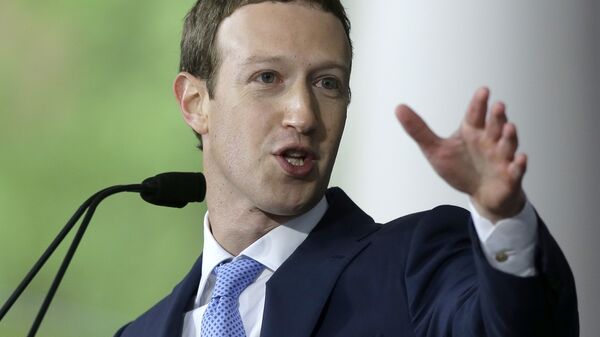In what he has described as his own personal goal for 2018, one of the founders and chief executive officer of Facebook has admitted it is making too many errors — some of which have already attracted widespread criticism from many European governments.
His promise comes as social media firms increasingly come under fire for the spread of so-called 'fake news' during recent political elections in a number of countries including the United States, Germany and Britain.
In a post on his page on Facebook, Mr. Zuckerberg admitted he now intended to enforce policies and prevent the misuse of its original intended purpose. He promised to focus on "important issues" including "protecting our community from abuse and hate, defending against interference by nation stakes, or making sure that time spent on Facebook is time well spent."
The multi-billionaire insisted it wasn't going to be an easy task, however, saying: "We won't prevent all mistakes or abuse, but we currently make too many errors enforcing our policies and preventing misuse of our tools.
He added: "If we're successful this year then we'll end 2018 on a much better trajectory."
One of the major issues he intended to address is the debate about centralization and decentralization. Technology had the promise of putting more power into people's hands but many had now lost faith in that promise believing it had actually centralized power.
Way Forward
The Facebook chief said he believed encryption and digital currency had the power to counter this trend, admitting he would now explore how to use them on the social media giant.
"This will be a serious year of self improvement and I'm looking forward to learning from working to fix our issues together," the CEO added.
His decision to address the problems facing Facebook — which has more than two billion users — comes at a time when it is facing growing scrutiny over its ability to control much of the news people read, giving rise to complaints over the spread of fake reporting.
At the same time, however, Facebook remains keen to grow its user base especially as this determines its overall share price — something its shareholders are keen to see rise.
Sorry, Mark Zuckerberg, defending democracy against foreign nation state interference is a public — not personal- challenge. https://t.co/sscRvtv1dr pic.twitter.com/5tPYhqW3jf
— chris zappone (@chrizap) 4 January 2018
Don't discount yourself, no matter what you're doing. Everyone has a unique perspective that they can bring to the world. — Mark Zuckerberg
— Tim Fargo (@tim_fargo) 5 January 2018
Criticism
It is not only European governments — France, Germany and the UK — who have actively complained over the growing influence of Facebook especially in the war against terrorism during 2017, even one of its own founders confessed last year they knew they were creating a monster.
Sean Parker, the company's founding president, confessed the founders knew they were creating something addictive which exploited "a vulnerability in human psychology" from the outset.
The billionaire described how in the early days of Facebook people would tell him they weren't on social media because they valued their real-life interactions. "And I would say, 'Ok. You know, you will be," he said.
Mr. Parker said: "I don't know if I really understood the consequences of what I was saying. It literally changes your relationship with society, with each other. It probably interferes with productivity in weird ways. God only knows what it's doing to our children's brains."


